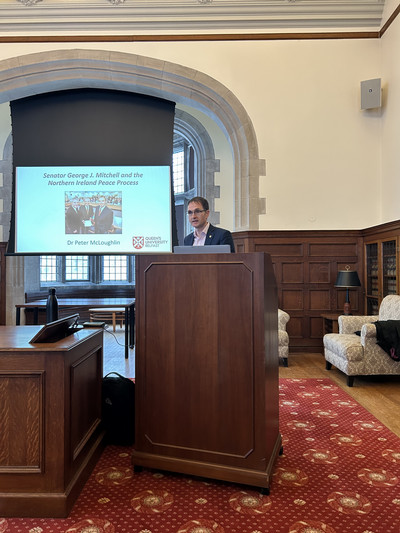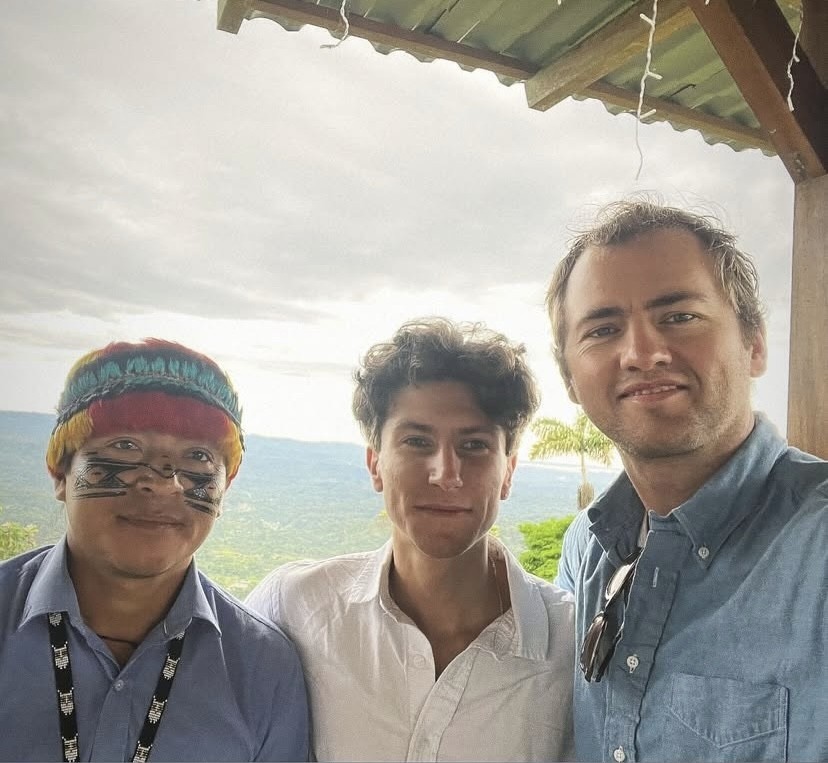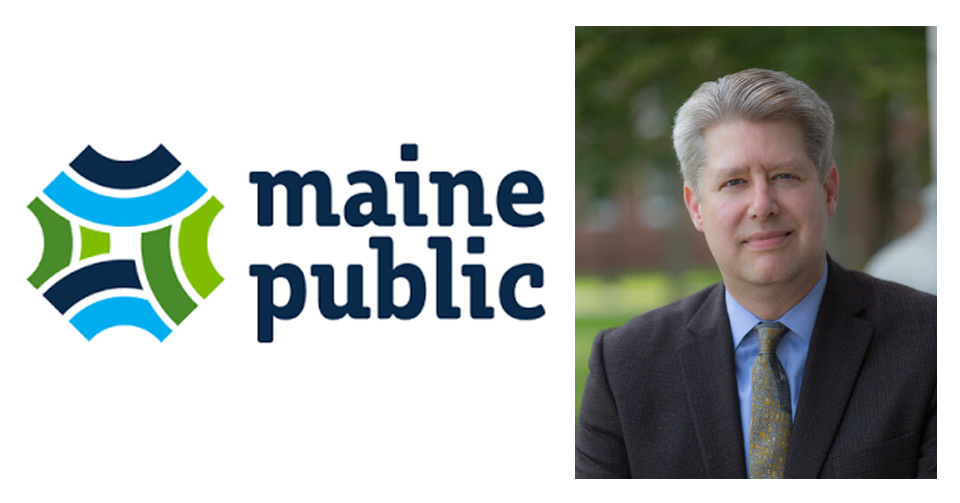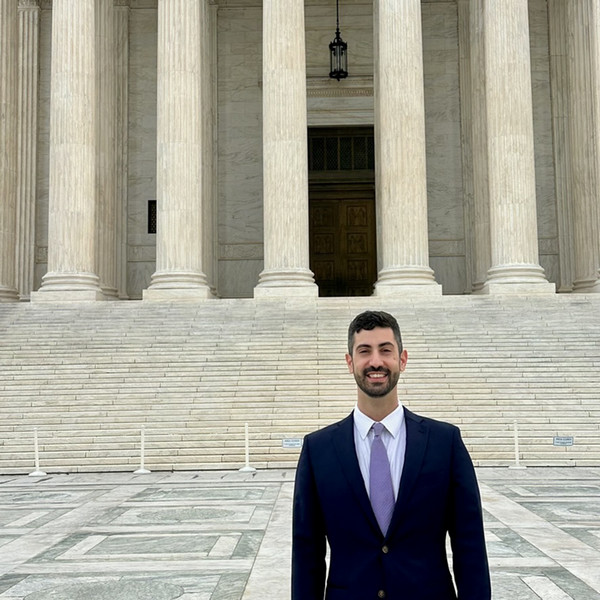Professor Henry Laurence on Barack Obama's Japan Visit
By Tom Porter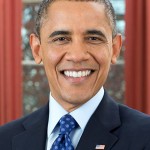
President Barack Obama touched down in Japan Wednesday for an historic visit that includes a trip to Hiroshima. Obama will be the first sitting American president to visit the city devastated in 1945 when the US dropped an atomic bomb on it. According to the White House, he’s expected to use the visit “to highlight his continued commitment to pursuing the peace and security of a world without nuclear weapons,” but Obama is not expected to issue an apology for the attack.
While in Japan, Obama is also due to attend the G7 summit of industrialized nations—a group that includes Japan, but no other Asian countries. Henry C.W. Laurence is Associate Professor of Government and Asian Studies and an expert on Japanese politics.
He spoke with College Writer and Multimedia Producer Tom Porter.
Tom Porter: What was your first thought when you heard about Obama’s planned trip to Japan, including the Hiroshima visit?
Henry Laurence: I thought it made a lot of sense from Obama’s point of view to cement his legacy. And I think it’s great for Japanese Prime Minister Shinzo Abe in that it will put the U.S.-Japan relationship on good terms. They will both be looking forward. It feeds Abe’s narrative of using Hiroshima as a place to say “Never again – we are moving forward with the Americans in a strong partnership to keep the world safe and prevent this from happening again.” And it’s absolutely no surprise at all that Obama is not going to apologize, that is clearly off-limits for him.
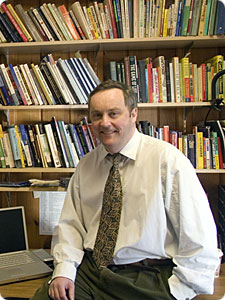
TP: Could Obama’s refusal to apologize lead to some negative reaction in Japan?
HL: Not really. The Japanese wouldn’t expect an apology, many wouldn’t want it. Certainly some think that it’s warranted and there will be people who say he should apologize but no-one’s expecting it. The vast majority of Japanese are going to welcome the fact that Obama, while stopping short of showing remorse, at least acknowledges the terrible things that happened at Hiroshima.
TP: Do you think there’s any concern in Washington about the Shinto revival that Abe is part of? Particularly the conservative, nationalistic strain of the religion, which is associated with Japanese militarism?
HL: I don’t think there should be. I think it will be made a big deal, particularly elsewhere in Asia. One of the things to consider about Japan coming to terms with its wartime atrocities is not only what the Japanese say, but how that is presented and used, especially in China but also in North and South Korea.
Certainly the selection of Ise Jingu (a revered Shinto shrine) as the venue for the G7 talks, and Abe’s association with “State Shinto” (the use of the Shinto religion by Japan’s leaders), all feeds his view of Japan as a beautiful country, “Utsukushii Kuni” he calls it: an idealized romanticized view of Japan’s unique culture and history.
Shinto was certainly used by the militarists, and there were branches of Shinto that allowed themselves to be used and were fully part of the militarist revival, but Abe would like to draw a distinction between that and what he’s trying to do. And don’t forget there’s vastly more to Shintoism than “State Shinto” and its support for the militarists in World War Two. Abe would say it’s not endorsing militarism to talk about Shinto as something that the Japanese should be proud of. So yes it clearly feeds a traditionalist, conservative agenda. But personally I’m not worried that it’s a sign Japan is about to re-militarize and go on the rampage. I don’t think that’s on anyone’s agenda, apart from maybe a few crazy nationalists, which you find in every country.
TP: Turning the focus to China, and that country’s territorial ambitions in the South China Seas. How much will this be on agenda at the G7 conference and in bi-lateral talks between Obama and Abe?

HL: I think a lot. I think Abe is worried about China, and his foreign policy reflects that. His moves on reinterpreting the constitution, on trying to get closer ties with other Asian countries, are all part of him feeling a threat from China. Japanese policymakers have for decades always seen America as having a zero sum relationship with Japan and China: If the US is close with Japan, it’s going to be further away from China, and vice versa. Whether that’s right or not that’s the way they see it so I think Abe will be doing everything he can to put front and center the US-Japan relationship at the expense of China.
And of course they’re worried about the territorial disputes and are probably not unhappy that China appears to be overplaying its hand in being expansionist and pushing countries that Japan was at one stage worried would go into the China camp, into the US-Japan camp, as Tokyo sees it. We’re talking about countries like Vietnam.
TP: How much do you think the Trans Pacific Partnership trade deal will feature in this week’s discussions?
HL: The TPP is clearly going to be a big part of them, and that is as much about cementing geostrategic ties in the region as it is about economics. Abe will really want to be able to tie the TPP into law and into practice. And again that is seen to be something that benefits the U.S. and Japan while keeping China out of the institutional framework, at least at the beginning.
